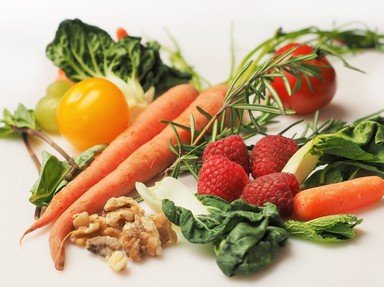Quiz Answer Key and Fun Facts
1. Vitamin A is the common name for a number of chemical substances. Which of the following *IS* a good source of vitamin A?
2. Vitamin B1 is also known as thiamine. A severe deficiency of this vitamin can lead to which disease?
3. Which of the following foods typically contains a lot of vitamin B2 (riboflavin)?
4. Nicotinamide sounds as if it is related to smoking, but smoking will not provide you with this vitamin. Which vitamin can come as nicotinamide?
5. Bananas (to name just one example) can provide sufficient vitamin B6. What is a possible consequence of a lack of vitamin B6?
6. Raw egg yolk is not the most common recommended food. But it can provide which of the following vitamins?
7. Pregnant women can benefit from food supplements containing vitamin B9 (foliates). What is the risk if they don't take such supplements?
8. Cyanocobalamin sounds quite toxic. Do you really need a daily dose of this chemical substance?
9. Which disease can be caused by a severe and prolonged lack of vitamin C?
10. Which vitamin can more easily be obtained by exposure to sunlight than by nutrition?
Source: Author
JanIQ
This quiz was reviewed by FunTrivia editor
rossian before going online.
Any errors found in FunTrivia content are routinely corrected through our feedback system.
